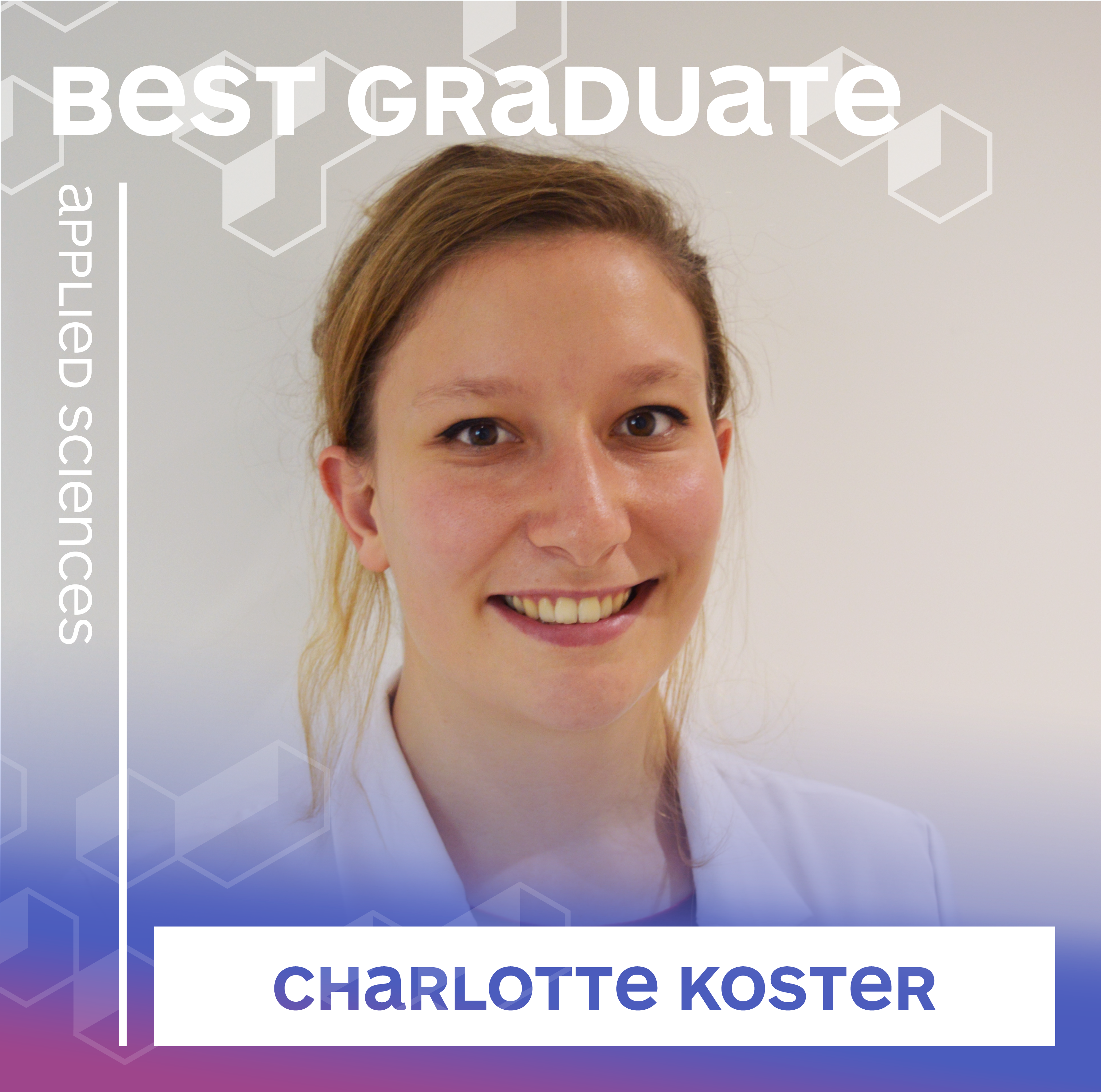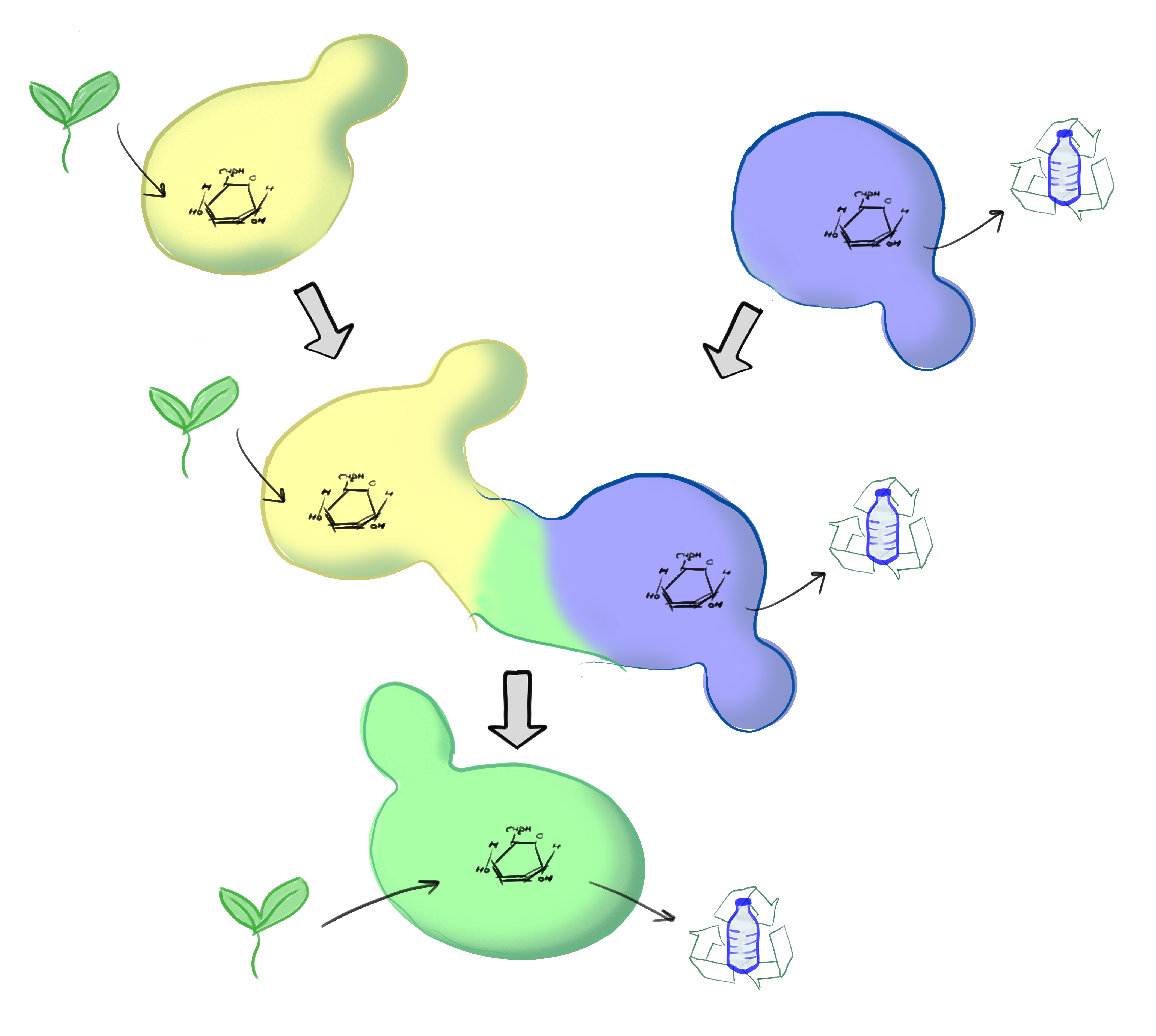Charlotte Koster
Faculty of Applied Sciences
Charlotte obtained her master’s degree in Life Sciences & Technology. She chose to focus on the generation and analysis of industrially relevant yeast hybrids. She developed a fast and efficient method to generate new genetic variants of yeasts by ‘crossing’ parental strains with specific desired characteristics.
The method that Charlotte designed, tested and optimized is highly relevant for industrial application. She applied this method to produce a new hybrid yeast that can be used in the beer brewing industry. Her thesis formed the basis for a patent application, on which she is one of the inventors. Charlotte received an impressive 9.5 for her thesis.
Besides her excellent study achievements, she has also been an active member of the TU Delft student team that won a gold medal in the 2016 International Genetically Engineered Machine competition (iGEM). Another illustrative example of Charlotte’s drive to seek challenges is her internship performed at Ginkgo Bioworks, a high-profile Boston-based company active in the frontline of synthetic biotechnology. The top scientists who supervised Charlotte at Ginkgo awarded her a 9.5 for her internship.
“During her graduation project, Charlotte was not only scientifically, but also socially a ‘pacemaker’, with a very positive impact on our research group. As evident from discussions in the lab and her activities on social media, she has an active interest in the societal impacts of science.”
Graduation committee – Prof. Jack Pronk, Arthur Gorter de Vries, Dr Jean-Marc Daran, Dr Peter-Leon Hagedoorn
Thesis synposis
With ongoing climate change, we need to make our industrial processes more sustainable. In biotechnology, micro-organisms like yeast are used as ‘cell factories’ to produce products like biofuels, medicine and bioplastics in a sustainable way. However, this often requires genetic modification of the organisms, which is still a controversial issue. The use of hybrid yeasts can form a non-GMO alternative. Like some animals, different yeasts can mate with each other, forming hybrids that inherit qualities from each parent. For instance, mating a bioplastic-producing yeast with a plant-consuming yeast could result in a hybrid capable of making bioplastics from plant waste, without using genetic modification. However, such mating is rare, so hybrids are difficult to obtain. Therefore, I developed a method to obtain hybrid yeasts, based on color-coding and optical sorting of different yeasts, providing a promising approach to develop new non-genetically modified yeasts for the biotech industry.


